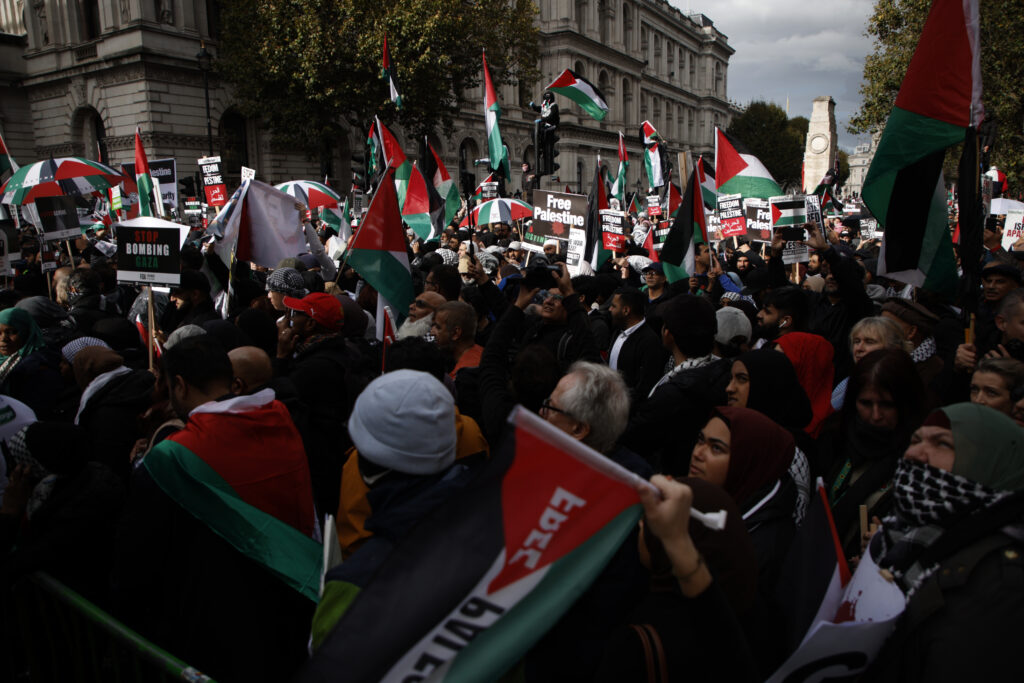The foundation has filed similar legal complaints against Israeli soldiers traveling in other countries, including the Netherlands and Ecuador.
By Pesach Benson, TPS
After news broke on Sunday of an Israeli soldier being forced to leave Brazil over a war crimes investigation, an Israeli who faced a similar predicament in Britain shared his experience with The Press Service of Israel.
“If you ask me if I’m scared to fly, yes I am very scared,” Alon Elgali told TPS-IL.
Elgali, a civilian, is the owner of Meshek Afar Ltd, a contracting company that works for the Israel Defense Forces in Gaza who was in London for a wedding in November.
The Israel Defense Forces has warned soldiers traveling abroad that they risk being arrested, forcing them to cancel travel plans while others have been advised to return home — including one who narrowly avoided arrest in Cyprus in mid-November.
He explained to TPS-IL that the Hind Rajab Foundation, a Belgian-based non-governmental organization, had written about him. “They knew I was at a wedding in London and its whereabouts. They followed my every step.”
The Hind Rajab Foundation was created in September 2024 and is linked to Hezbollah, TPS-IL has learned.
The foundation’s chairman, Dyab Abou Jahjah, is a known supporter of Hezbollah, according to the NGO Monitor, a Jerusalem-based organization that monitors the activities and funding of NGOs.
Jahjah boasted of his membership in the terror group when he told The New York Times in 2003, “I had some military training, I’m still very proud of this.”
The foundation has filed similar legal complaints against Israeli soldiers traveling in other countries, including the Netherlands and Ecuador.
It also petitioned the International Criminal Court to issue Interpol arrest warrants against 1,000 Israeli soldiers in eight different countries, including France, Ireland, and South Africa, according to the foundation’s website.
Elgali said he was never contacted by British authorities.
Elgali’s wife, Yifat, an attorney, told TPS-IL that they first realized there was trouble in London when several Arabs from an organization that she believed was Hind Rajab questioned her and Alon about what he did in Gaza.
An article published in one Arab news site based on Hind Rajab claimed Alon demolished mosques and United Nations schools in Gaza.
Said Alon, “We don’t demolish mosques or UNRWA schools. It isn’t something that is happening.”
Yifat told TPS-IL, “We avoided flying abroad because we still don’t have definitive answers if we have an arrest warrant somewhere in the world,” his wife, Yifat added. “We don’t even know today if it was a request or an existing arrest warrant.”
Scotland Yard did not respond to TPS-IL requests for comment.
The Israel Defense Forces formed a special unit after October 7 to monitor the information about possible arrests and to warn the soldiers, or help them to return to Israel if there is a fear of arrest.
They also advise a soldier who wants to go abroad about possible risks and how to avoid them in a specific country. Soldiers are advised not to upload images of them in Gaza, especially where they can be identified.
“But the discipline regarding this, especially among the reservists, could be better,” he admitted.
Legal expert Maurice Hirsch told TPS-IL in December that regarding complaints filed by anti-Israeli NGOs, the situation differs from country to country.
“Many countries have legislation that allows them to prosecute war criminals, even if they are not citizens of the country. It is the so-called ‘universal authority,’” said Hirsch — a senior legal analyst at Human Rights Voices, who served previously as Director of the Military Prosecution in Judea and Samaria.
Countries that do not recognize the International Criminal Court’s jurisdiction, such as the US, China, and India, are relatively safe for travel.
“Every country has its own rules regarding this. In the UK, for example, they changed the legislation a few years ago, and now only the government can file a complaint like this, but not an NGO or a private person. In Belgium the situation is different,” he explained.


